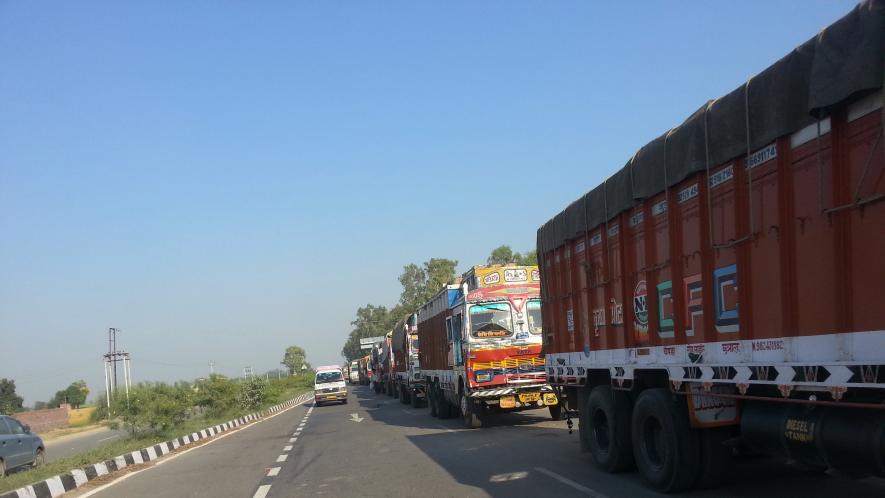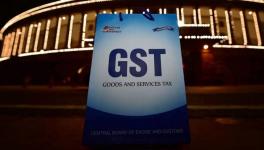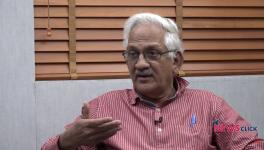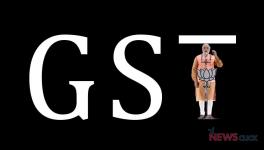Truckers’ Two-day ‘Token’ Strike Against GST, Diesel Hikes Ends, But More to Come

Representational image. Image courtesy: Wikimedia Commons.
The two-day nationwide strike by truckers protesting against the Goods and Services Tax (GST) regime and the exorbitant hikes in diesel price entered its second day on October 10.
However, this chakkajam led by the All India Motor Transport Congress (AIMTC) was only a “token strike”, and truck operators have said they would intensify their stir after the Diwali festive season is over, if their demands are not met.
“Working under the GST regime has become cumbersome,” Naveen Gupta, AIMTC secretary general, told Newsclick.
He said the transport sector is divided into three verticals – truck drivers, brokers (suppliers), and transporters. “And the multiple schemes, contradictory clauses and complicated structure are causing a lot of confusion for all. The GST claims to bring uniformity, but it has created chaos and disrupted our work.”
“This chakkajam was an attention-seeking call. We’ve been raising the issue with the government for almost four months, but have not got a single clarification from the government,” he said.
Although truckers were exempt from GST, the various policies and clauses under the tax system have led to “coercive registration and unnecessary compliance”, Gupta said.
He said truckers faced double taxation, as the selling of used and spare parts in the scrap market also attracted GST. “So truckers are taxed while buying as well as while selling,” said Gupta.
The steep hike in diesel prices and the daily changes in fuel rates have also broken the back of the road transport sector, the AIMTC has said.
The sector has demanded that there be no GST registration and compliance for any vertical of the transport sector, and no double taxation on sale of used business assets.
As for diesel, the truckers demand that the government check the hikes in diesel price in keeping with the international market and the price of crude oil; that diesel prices be revised on a quarterly basis; and that diesel be brought under the GST regime to bring uniformity in pricing across the country.
The chakkajam began at 8 am on October 9 and ended at 8 pm the next day.
It was supported by the All India Transporters Welfare Association, the All India Confederation of Goods Vehicle Owners’ Associations, and the South India Motor Transport Association.
Get the latest reports & analysis with people's perspective on Protests, movements & deep analytical videos, discussions of the current affairs in your Telegram app. Subscribe to NewsClick's Telegram channel & get Real-Time updates on stories, as they get published on our website.
























